DIFFERENT PLOT, SAME MESSAGE…
Some will insist that the election result was far from unambiguous, with the winner receiving barely more than one-third of Singaporeans’ votes
Looked at another way, though, the people have spoken in resounding fashion.
First, it’s clear that most people are not ready to give up on the PAP. Two Presidential candidates with a combined total of more than half a century as PAP MPs – and who only quit the party in order to run for the PE – have together received 70% of Singaporeans’ votes.
Second, however, most people are not prepared to give the government their blind obedience or implicit trust. Presented with credible alternatives, almost two-thirds of the electorate were willing to turn their backs on the government’s preferred candidate.
The bottom line is no different from the GE: Singaporeans may not be ready for a revolution, but they demand a new relationship with the government.
The PE has followed the GE trajectory in another respect: it’s shown that a reshaping of Singapore politics can just as likely come from splits in the Establishment as from outside the PAP. One of the striking things about May’s GE was the entry of PAP-lookalikes into opposition ranks. The PE showed this even more clearly.
This, then, is the new terrain of Singapore politics – what Dr Tony Tan has called the new normal. Dr Tan has survived it, just barely. For him, the worst is probably over. The largely ceremonial role of the President – a role that most Singaporeans are quite comfortable with – means that Dr Tan will be allowed to put the heat of the campaign behind him.
As for the PAP government, it may feel momentary relief that it’s still on track and in the driver’s seat – but there’s still no light at the end of the tunnel.
A productive contest
The close contest will leave many Singaporeans rueing the way the anti-government vote was split among three candidates. Indeed, if it had been a straight fight between the government’s man and either Tan Cheng Bock or Tan Jee Say, the result would have been a stunning victory for those who wanted to push the PAP into a corner.
However, such thinking overestimates the importance of the Presidency in Singapore’s democratic evolution. Even if Tan Jee Say had won – then what? All the candidates eventually admitted that the President’s role was pretty circumscribed and all vowed not to be confrontational.
The real battleground for openness and democracy is in the partisan struggle for Parliamentary seats, and in civil society. That being the case, the four-way Presidential contest has been helpful, for it has allowed a range of ideas and ideologies to be openly debated.
These issues included:
- How the PAP should accommodate the new reality of an institutionalised parliamentary opposition, and how agencies should treat opposition MPs;
- Whether the ISA should ever again be used against non-violent political opponents;
- Whether mandatory capital punishment is ripe for review; and:
- Whether Singapore’s wealth is distributed equitably enough.
- It’s unlikely that such issues would have gotten as thorough an airing and generated such a range of opinions if there had been only two candidates.
They can now be picked up by other Singaporeans. And, ultimately, how such debates are resolved will have a greater impact on Singapore politics over the next six years than whether the Presidential Election was won by Tan, Tan, Tan or Tan.
* Apologies to those who commented on this blog post while it was hosted on Apple’s Mobile Me servers. Comments were lost when I belatedly transferred the content to a new host after Apple ended its Mobile Me service.
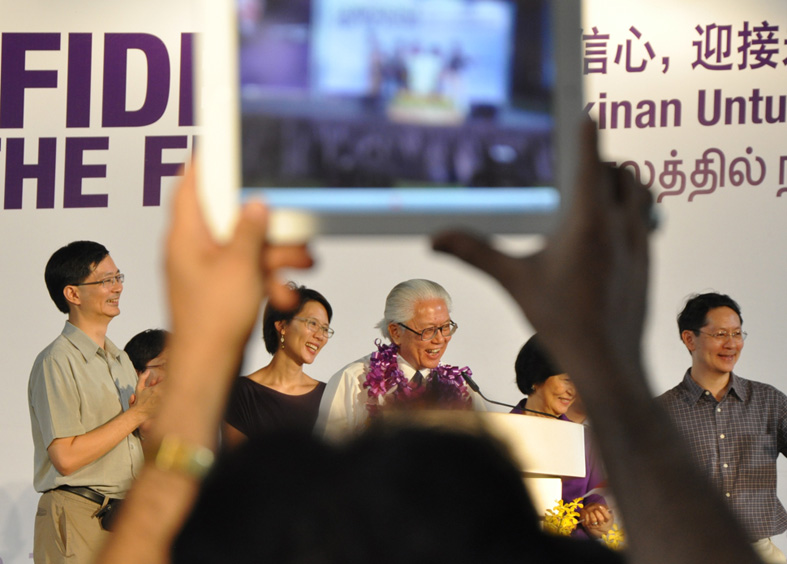
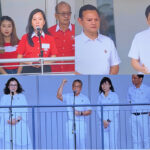
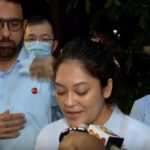
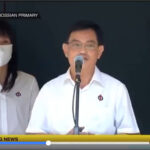

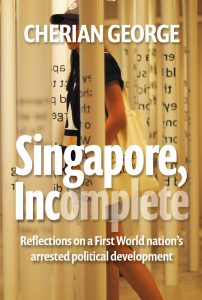
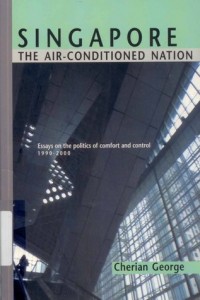
Comments are closed.